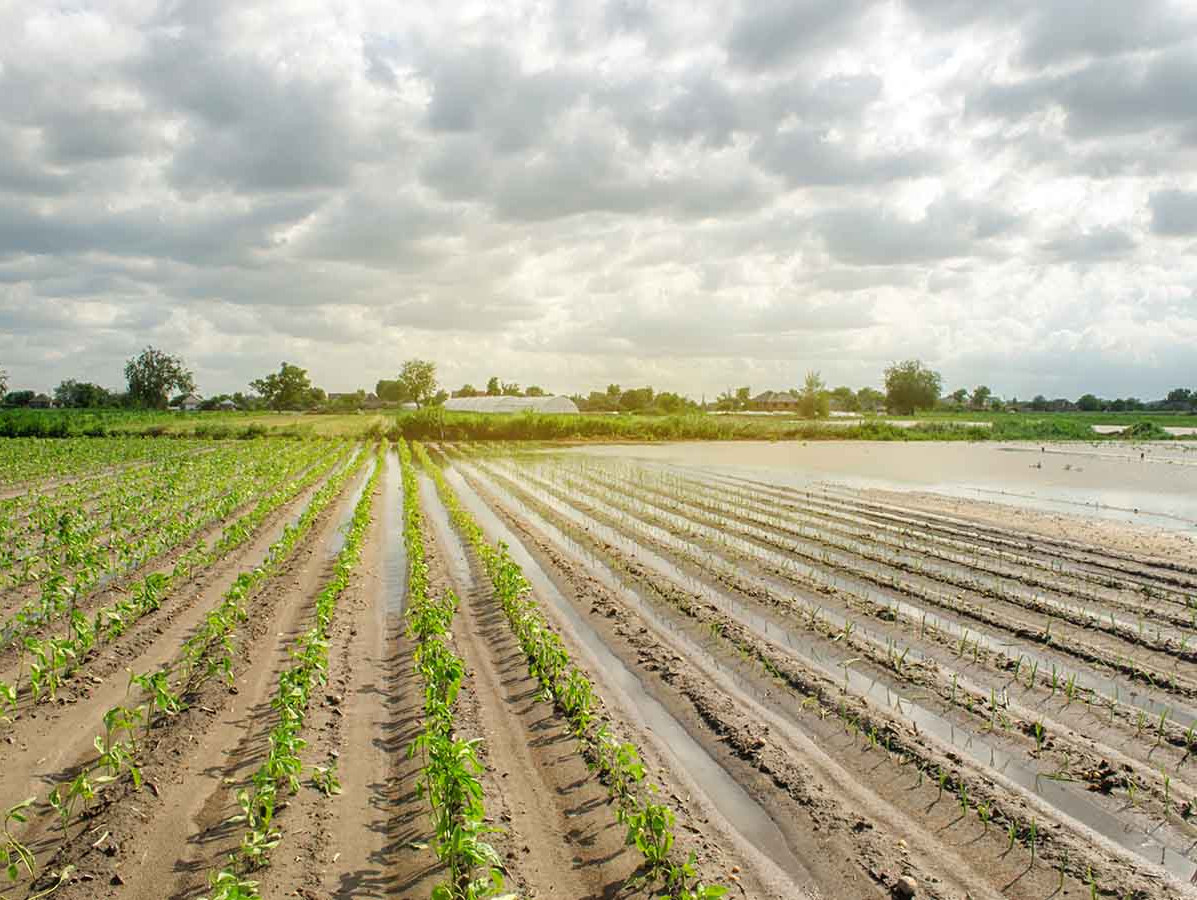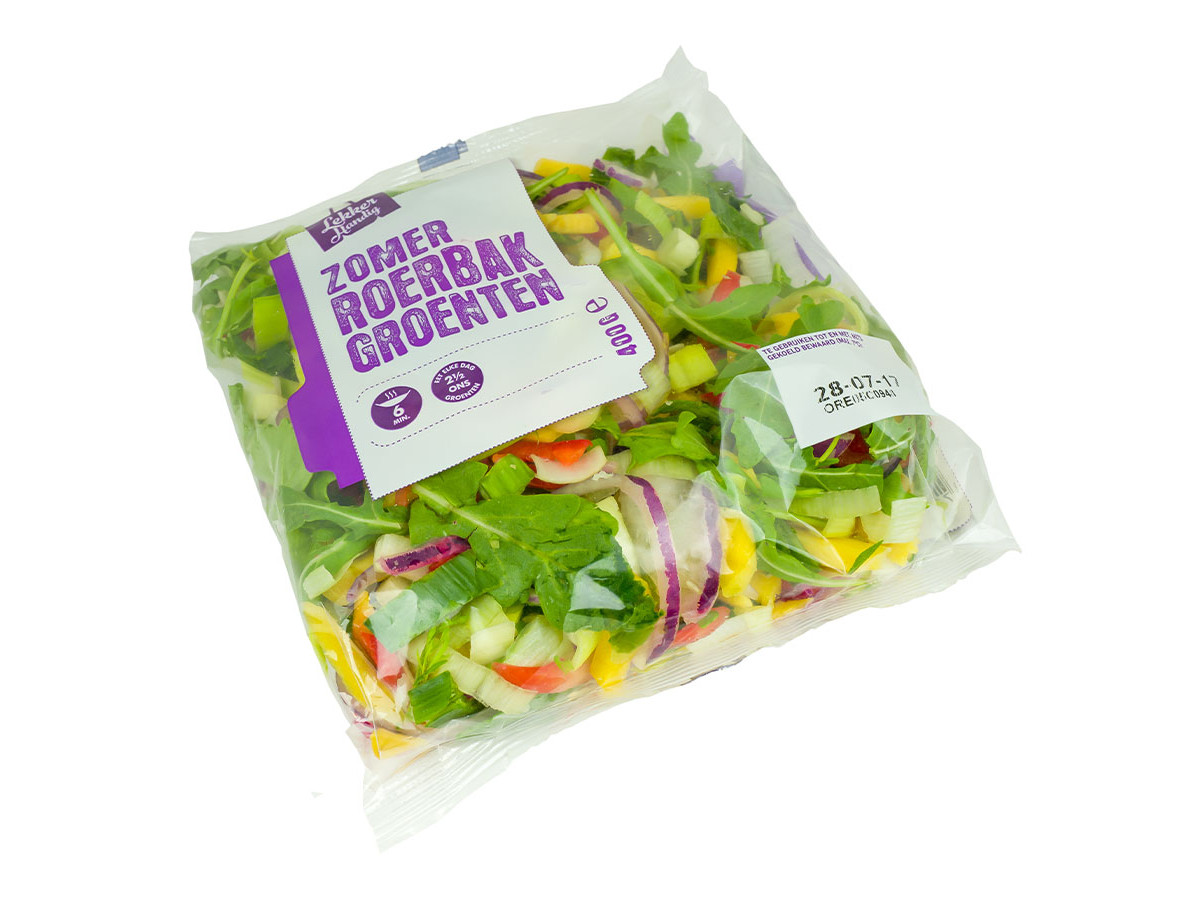
Dutch food companies face risks from the effects of climate change, according to a recent report by ABN Amro. Rob Morren states, "It will be a significant challenge for them to be flexible and respond quickly to the impacts of climate change over the coming decades. To manage these effects, it is wise to conduct an impact analysis."
Which ingredients and products are most vulnerable to climate change for Dutch food companies? And what are the consequences for this industry? Sector specialists at ABN Amro investigated this using import data from Statistics Netherlands (CBS) and the climate vulnerability index from the Notre Dame Global Adaptation Initiative. They also identified which products have particularly vulnerable supply chains due to their limited number of source countries. Sector specialist and co-author of the report, Rob Morren explains.
Annually, Dutch companies globally purchase more than €30 billion in agricultural products, as the sector analysis reveals. What products from which countries does this primarily concern? Morren explains, "Thirty to forty percent of the products we import come from countries outside the European Union. Major importing countries include Brazil for meat, vegetables, fruit, and grains; Ivory Coast for coffee; and Peru and South Africa for vegetables and fruit, such as avocados and grapes. All these countries are sensitive to climate change."
"Coffee and cocoa are certainly at the top of the list. These products originate from a limited number of countries, and the conditions under which these crops grow are becoming increasingly challenging. Consumer research additionally shows that coffee is the product people least want to do without: 60% say they cannot live without it. Hence, they are willing to pay more for it. However, people will also have to start accepting that some products, due to climate change, may sometimes be unavailable, more expensive, or of differing quality. The sector cannot always solve these issues. As a producer or retailer, you cannot keep jumping through hoops to keep a product available."
He pulls out a matrix from the report and continues, "However, the scale of imports and direct consumer demand do not always determine the impact on manufacturers. Take vanilla, for example; it is used in small amounts but is a significant flavor enhancer. The impact on manufacturers also depends on how they must adjust recipes or make concessions to quality when choosing alternatives."

"We hope so. Many companies are still barely dealing with this issue. That’s because the chains are so long that the link before them currently resolves it. The problem is sometimes really hidden from the supplier's view. They do not feel the pain. Not directly. Not yet. But eventually, it will land on their plate too. Conversely, producers using sensitive products like cocoa, vanilla, or almonds have long been dealing with the effects of climate change in their scenario planning: What if the harvest fails; what do we do for the quality, supply, and price? Are there emerging markets that are going after the same raw material? But also closer to home: a meal salad provider is already facing certain lettuce types being less available due to failed harvests, needing alternatives. The frequency and severity of this is only increasing."
"The challenge with climate change is that we KNOW it will become wetter, warmer, drier, more extreme... but the models to precisely predict what that means at the field level are still very much in development. That makes it complex. What you CAN know, for example, is what the infrastructure looks like on the plots where you get your mangoes, avocados, or corn from. And if you are aware that it will rain a lot during a certain period, AND that the factory where you get your ingredients from is right next to a river;… you can bet that if you do not take sufficient measures around that factory, you are at great risk. This constant need to switch between ingredients, and their quality and availability, requires a high degree of adaptability from organizations and production departments. Anticipating this increasing unpredictability is becoming a skill that companies must increasingly develop."
"It starts with awareness," Rob states. "Include your employees in what climate change is, and gather knowledge and data on what its effects might be on your company, before you start thinking about solutions. Discuss the impact with your own suppliers and customers as well. It is particularly important with customers to prevent surprises and possibly even work together to find solutions."
"The big accelerator that stimulates this way of thinking is the Corporate Sustainability Reporting Directive (CSRD)," he emphasizes. "This legislation not only requires food manufacturers to describe the impact of their company on the world but also what the impact of the changing world—including climate change—has on the operation of their company. The fact is that everything we have emitted over the past decades is ingrained into our climate. We won't just remove it in twenty years, even if we were to stop emitting all greenhouse gases today. At the same time, we must also take steps now to prevent it from getting worse. The effects of climate change are becoming more intense and closer, but the hypothetical situation that could arise must already be described through CSRD. You need answers to questions such as 'Which raw materials will come under pressure? When will that happen? And 'What is the effect of that on my operation and thus on the financial resilience of my business?'"
He pauses briefly. "We are now talking about ingredients and companies. But local communities where you get your raw materials also suffer the consequences of climate change. The living environment of local workers is changing as well."
"Yes. The responsibility of businesses goes beyond securing their products and production. We must also be aware of the ecosystems around them and the people around production locations. They experience the direct effects of climate change. This ethical component will become increasingly important."

"Buyers play a crucial role in ensuring the stability of raw material supply. They can, possibly in cooperation with a specialized consultancy, investigate whether ingredients can be sourced from other suppliers or countries and what substitutes are available. Artificial intelligence can provide support; by combining better weather forecasts with local production properties, you can make better predictions. Buyers also play a crucial role in setting up long-term relationships with suppliers and investments in climate-resilient production methods. But this problem does not lie solely with the buyers. An important step is starting a multidisciplinary team."
"Manufacturers must communicate more often about a different recipe, price increase, or the inability to deliver products. It is the task of the communication department to be transparent about this to customers and consumers. They are therefore an important part of your team. Because you must switch between ingredients more often, there must also be someone from the product development department on the team; especially for manufacturers of composite products. You don't want the taste, bite, and safety of your product to change. Moreover, logistics managers play an important role. Storms, extreme drought, and floods can make roads impassable or production locations unreachable. This causes huge disruptions in supply chains."
"The contracts with supermarkets are usually tightly nailed down with strict SLAs. Force majeure is an aspect of this. Manufacturers could invoke this during the COVID-19 pandemic. But how do you define 'force majeure' in the case of climate change? When does it apply? If products are unavailable due to extreme rainfall? Or is it simply not well managed by the supplier; because they do not have good emergency scenarios ready with alternatives, or duo- or triple sourcing? I do not have an answer to that. But there will be more and more discussions about this between manufacturers and retailers."
"Only if we expect the outcome to be sufficiently contrasting with what we have seen now. But I think what is currently there will still be relevant in three, four years..."
"For us, this research is now a way to engage customers. As a bank, we find it important to look at the effect of climate change on companies. The physical risks of climate change sometimes really hinder the business model, undermining the financial health of businesses. We therefore have an interest in our clients anticipating this. But they naturally want that too. They do not want to go out of business. Production lines must keep running; downtime costs money. By mapping risks well and having alternatives for certain ingredients or routes ready, you minimize the downtime as a company. Where it's not just about the risks themselves, but also about the resilience against risks that you need to look at within your chain. To map that out properly, you need your partners. That's something I would still like to point out to the industry: collaboration in the chain is really becoming increasingly important."
Source: Vakblad Voedingsindustrie 2024